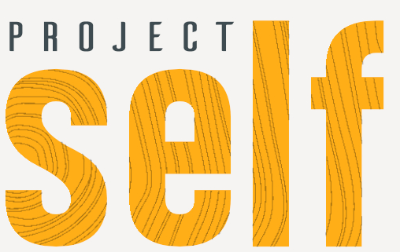“All of us think we are a little better than we really are. All of us think we are a little worse than we really are”. Michael Yapko
I’m beginning to rebel against the concept of Being a Better Person.
You might think what’s wrong with wanting to be better person?
Within the dictionary definition of ‘better’, I found that it does relate to increasing good qualities, but more prevalently, it describes surpassing, superiority, preferability, acceptability. Bettering oneself speaks historically of status.
Being a better person suggests we need to improve.
Sure, we could all be nicer, kinder people with healthier, more disciplined habits … Plenty of options here to pick in deciding what we need to be better at, or more of, or less of, or should/could need to work on. There are endless ways to be a better person, to improve on who we are.
The implication to me is that there is work needed to be acceptable to ourself, to others. Yet we never quite get to better because better evolves as we do.
Better is endless.
What’s wrong with good enough? Many people seem to skip from ‘I’m not good enough’ to ‘I need to be a better person’.
My suspicion is that improvement is part of the self-judgment and internal criticism that tells us we need to be different: it seems to be inherent to who we are that we want to be someone else. We don’t seem to like ourselves very much. We focus on our faults, mistakes, misjudgments, our fuck ups and our fucked upness. We want to get rid of them.
It’s part of a belief system that if we are different we will be happier, calmer, more fulfilled, more focused, successful…
The WHEN I GET THERE And I’VE DONE THAT, THEN …
Better is a measure of then.
Self development, personal growth and change are natural processes. We fuck up. We evolve and adapt, we learn, we reflect to understand. The extent or depth of that process relates to our capacity and engagement with our conscious awareness, but also self-compassion and acceptance.
I listen to many different perspectives on how we can feel and find our way through life towards: How to Find: Self. Personhood. Wellbeing. Purpose. Meaning. Being. Transformation. Change. Personal Growth. Authentic Self. Universality. Consciousness. Potentiality. Positivity …
How to :
Be the Best Version of Ourselves.
Achieve our Potential.
Find our Purpose.
Live a Meaningful life.
Change our unhealthy Habits.
Set and Achieve Goals.
Imagine the Future we want for ourselves and make it Happen.
Find our Passion.
Achieve Happiness.
Many of these voices contribute to my learning as a professional and development as a person. They serve as sources I am free to position myself with or not and decide if they resonate, as I learn what I want/need and don’t want/need to hear. But I can feel saturated and overwhelmed.
These voices sometimes feel like the subculture equivalent to How to Get: Money. Success. Achievement. Power. Productivity. Status. Self Improvement.
There are expectations and pressure implicit within self development and personal growth culture. It, like most others, precipitates a need, a greed; capitalising on the very human sense of lack, lostness and longing, the quest, the search to answer our questions. Particularly ‘How’? Essentially, how do I get love, recognition, belonging?
The answer often: “by being less this and doing more of that” …
This culture of the idealised more, which is internalised from an early age from our parents and education, is at the root of the prevalent sense within ourselves we are not enough as we are. Ironically striving to be a ‘better’ person prevents us being enough right now.
Not more or less; just you.
I once had a conversation with the Director of Animas, my coaching training school. I said “I don’t ever use the word transformation to describe what I do, because I coach towards acceptance”. He replied: “I disagree that that’s not transformation”.
I work with people to help them resource themselves with what they have available to them. Their selves. To give them permission to let go of, and challenge the ways in which they believe they should be better or different. So they can feel free and light in who they are.
Supporting people to realise they don’t need to change who they are, they need to be more themselves. This is change.
That’s who I’m interested in. The person right now. Not the person we think we need to become.
“When people start to meditate or to work with any kind of spiritual discipline, they often think that somehow they are going to improve, which is a sort of subtle aggression against who they really are. It’s a bit like saying, “If I jog, I’ll be a much better person.” “If I could only get a nicer house, I’d be a better person.” “If I could meditate and calm down, I’d be a better person.”… But loving-kindness – maitri – toward ourselves doesn’t mean getting rid of anything. [… ].The point is not to try to throw ourselves away and become something better. It’s about befriending who we are already.
Pema Chödrön ‘The Wisdom of No Escape’
